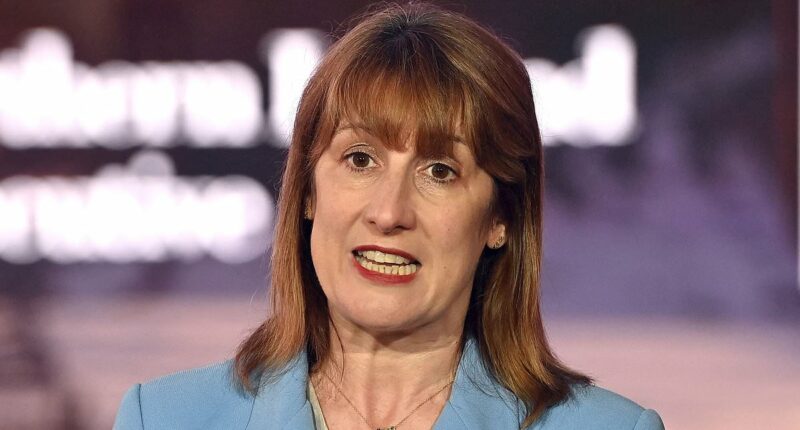Share this @internewscast.com
Rachel Reeves faced a furious backlash yesterday over a possible and highly controversial shake-up of property levies.
The Chancellor received warnings that replacing stamp duty with an annual charge for homes valued over £500,000 could negatively impact the market and unfairly penalize individuals who have diligently worked to purchase their houses.
Additionally, one of her Treasury ministers did not dismiss the possibility of implementing such a significant change in the upcoming Budget as she tries to address a £50 billion deficit in the public funds.
Before the previous election, Labour committed to not increasing taxes on the working population, specifically ruling out hikes in National Insurance, income tax, or VAT.
However, that stance appeared to become more flexible yesterday. Shadow Chancellor Sir Mel Stride commented: ‘Labour can be vague, but it’s evident they are preparing to increase taxes once more in the Autumn Budget.
‘Keir Starmer and Rachel Reeves pledged not to raise taxes on working people, yet they implemented a £25 billion Jobs Tax, which will cost the average working household £3,500.
‘Now, after their botched welfare reforms and economic mismanagement, they are clearly gearing up to do it all over again this autumn.
‘The British public simply cannot afford Labour. Only the Conservatives believe in sound money and low taxes.’

Rachel Reeves is facing a furious backlash after she was revealed to be plotting a radical shake-up of property taxes

Ms Reeves is understood to have asked officials to look at a potential overhaul of property taxes (stock photo)

Keir Starmer (pictured) previously promised not to raise taxes on working people
In her quest to enhance the Government’s revenue and stimulate economic growth, Ms. Reeves has reportedly instructed officials to consider a potential revamp of property taxes.
She has already been called on by economists to scrap the current system, in which buyers have to pay thousands of pounds in stamp duty on house sales, which they say deters people from moving.
The Guardian reported that owners of houses worth more than £500,000 could have to pay a ‘proportional property tax’ based on the value of their properties when they sell up.
However, sources played down the claims that Treasury officials are looking at this proposal or threshold.
Sources also moved away from suggestions that civil servants are drawing on the findings of a report published last year by think-tank Onward, which proposed that only future owners could pay an annual tax based on the value of the property instead of stamp duty.
Under the plan put forward by economist Professor Tim Leunig, current homeowners would not be hit by the charge, but if they do sell up in future their buyers would pay the levy each year instead of stamp duty at the point of purchase.

Kirstie Allsopp, the TV presenter who fronts Location, Location, Location, led a furious backlash over the reported plans
It is intended to open up the property market by making it less expensive to move and encouraging those in large homes to downsize.
TV presenter Kirstie Allsopp warned the Chancellor not to risk destabilising the market by ‘flying kites’ about potential new property taxes, telling Times Radio: ‘It’s not Rachel’s to go after because it’s their homes.
‘It’s the roof over their head. And this Government seems to want to punish people for making the sacrifices they’ve made to buy their own homes.’
James Browne, senior economic policy adviser at the Tony Blair Institute, said: ‘While replacing stamp duty with a new annual property levy on homes worth more than £500,000 is economically sensible, it would be politically challenging.
‘Either long-standing homeowners who are asset-rich but cash-poor would be hit with much larger bills or, if it only applied after a property changed hands, would discourage moving just as much as stamp duty does at the moment.’
Treasury minister Torsten Bell told Sky News: ‘Tax decisions are made by the Chancellor. I’m not going to start speculating on individual taxes.’
Last night a Treasury spokesman said: ‘We are protecting payslips for working people by keeping our promise to not raise the basic, higher or additional rates of income tax, employee National Insurance or VAT.’

















